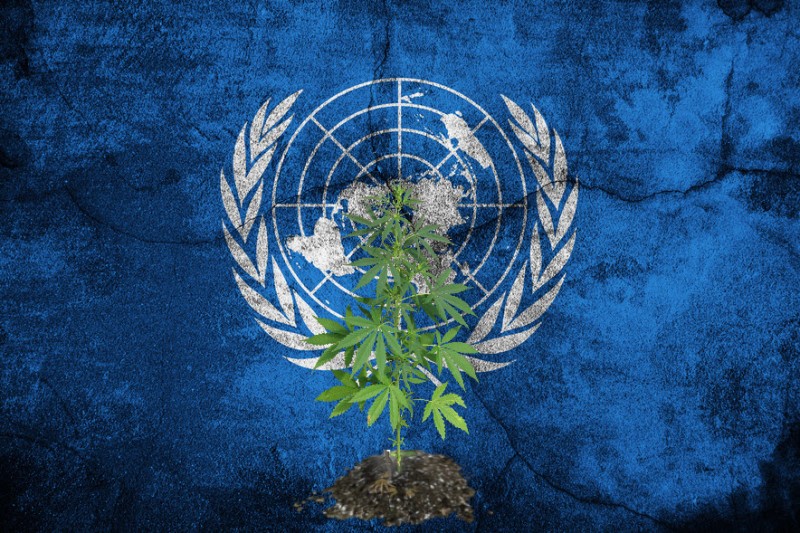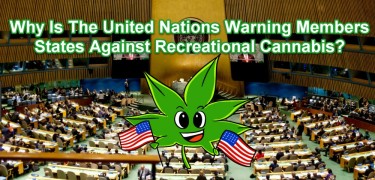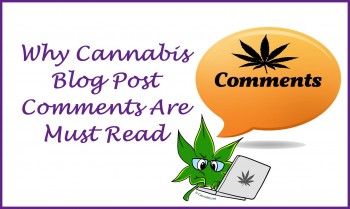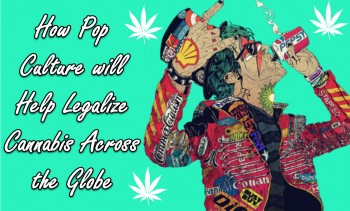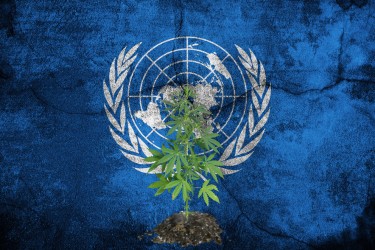
The UN's Cannabis Critique: A Case Decentralization
Recently, the UN had the audacity to criticize the US government for allowing states to legalize cannabis. But who are they to dictate how a sovereign nation should regulate a plant? The UN's critique reeks of centralized power and arrogance. It's a continuation of the same narrative that led to the failed war on drugs and the prohibition of cannabis.
It's not enough to end prohibition in the US alone. The entire world needs to wake up to the fact that these drug treaties are part of a larger system of oppression that undermines the freedom of the individual. Decentralization and diversity of opinions are crucial in ensuring that each person can exercise their rights without being subjected to the will of a few.
In this article, we will delve deeper into the flaws of the UN's critique and make a case for a world where the power is distributed and accountable to the people. It's time to stand up to centralized power and embrace a society that values individual freedom and diverse opinions.
What the UN Actually Said…
The United Nations (UN) has criticized the U.S. for its approach towards cannabis legalization. The UN's International Narcotics Control Board (INCB) argues that the federal government is not fulfilling its obligations under the 1961 Single Convention by allowing states within the country to legalize marijuana. The report states, "In States with a federal structure, a special issue may arise with respect to whether the federal Government may be held accountable if a federated entity implements legalization, which violates the conventions, while the federal Government does not have the power to compel the federated entity to fulfill the treaty obligations.”
According to the 1961 treaty, member nations must “give effect to and carry out the provisions of this Convention within their own territories.” The convention states that “unless a different intention appears from the treaty or is otherwise established, a treaty is binding upon each party in respect of its entire territory.”
However, the INCB has routinely criticized countries for allowing the enactment of cannabis legalization due to their obligations under the 1961 Single Convention to maintain prohibition. The practical impact of this analysis is unclear, as other UN member nations like Canada and Uruguay have outright federally legalized marijuana for adult use in clear contravention of the treaty without any discernible consequences from the international body.
But the INCB is leaning on the six-decade-old treaty provision to imply that the U.S. is shirking its duties to stay in compliance by allowing states to legalize marijuana for recreational purposes without taking enforcement action.
INCB said that more simple decriminalization of possession without allowing sales “can be considered consistent with the conventions as far as it respects the obligation to limit the use of drugs to medical and scientific purposes and under the condition that it remains within certain limits set by the conventions.”
Aside from the legalities of cannabis reform under international law, the board offered a number of criticisms against nations that have permitted legalization, and against marijuana consumption in general.
The INCB argued that the “growing availability and potency of cannabis products available on the illicit markets poses an increasing health risk.” The authorization and expansion of legal cannabis businesses has “contributed to the normalization and trivialization of cannabis use and, consequently, to reduced perceptions of harm associated with cannabis consumption.”
The board claimed that "Criminal organizations linked with large-scale illicit production and trafficking have benefited from the expanding demand for cannabis." It stated that "this trend represents a growing challenge for the international community, mainly for the States parties to the international drug control conventions, which stipulate that, subject to the provisions of those conventions, any kind of drug use must be limited to medical and scientific purposes and that any use contrary to the provisions of the conventions should be treated as ‘punishable offences.'"
The INCB acknowledged that different countries have sought to justify marijuana reform, in part, by maintaining that the policy changes support the convention’s stated goals of promoting health and safety, as well as respecting “human rights principles such as the rights to freedom, privacy and personal autonomy.” However, the board broadly responded by rejecting the arguments.
According to the INCB, allowing full adult-use legalization is “in contradiction to the obligations set out in the drug control conventions.” The board claimed that “it can be observed that legalization has not succeeded in overcoming the drug problems encountered in legalizing jurisdictions and worldwide. In those jurisdictions, consumption of cannabis is still higher than in others and prevalence of use is apparently increasing more rapidly than in non-legalizing jurisdictions, with noticeable health consequences.”
While it is unclear what the practical impact of the INCB's analysis is, it is notable that the international organization is leaning on the six-decade-old treaty provision to imply that the U.S. is shirking its duties to stay in compliance by allowing states to legalize marijuana for recreational purposes without taking enforcement action.
Let’s be clear - prohibition is about YOU not drugs!
The prohibition of drugs is not about the drugs themselves, but about the behavior associated with drugs. The idea that drugs can be illegal is a flawed one because it assumes that the government has the right to control what you do with your own mind and body. In reality, drug prohibition is a declaration that you do not own the rights to your own consciousness.
Let's be clear: the prohibition of drugs is about you, not the drugs. It is a means for the government to control your behavior and restrict your freedom. This is the most subtle form of tyranny on the planet.
The war on drugs has led to the imprisonment of millions of people, disproportionately affecting communities of color, and has done little to curb drug use. Instead, it has created a black market that is controlled by violent criminal organizations. The violence and corruption associated with drug prohibition are far more damaging than any potential harm that could come from drug use.
As long as individuals are not harming others or violating their rights, they should be free to make their own choices regarding drug use. The government's role should be to provide education and resources to help individuals make informed decisions, rather than enforcing punitive and oppressive laws.
In the words of journalist Johann Hari, "The opposite of addiction is not sobriety, it is human connection." The solution to drug use and addiction is not more prohibition, but rather a society that prioritizes human connection, mental health resources, and harm reduction strategies.
It's time to reframe the conversation around drug use and recognize that the prohibition of drugs is not about the drugs themselves, but about our fundamental right to self-ownership and personal freedom.
The Sticky Bottom Line
The UN's critique of the US's approach to cannabis legalization is just another example of the overreaching audacity of centralized power. The idea that a group of unelected officials can dictate the fate of individuals is a clear violation of individual liberty. It's time for a "un-united nations" when it comes to international agreements that limit individual liberty. We must only be united in maximizing the freedom of the individual globally. We cannot allow billionaires, corporations, or unelected officials to dictate the lives of the masses.
The time for freedom is now. We must unplug from the narrative that has been fed to us for too long. We must demand our right to think, to choose, and to live as we see fit. Drug prohibition is just one example of the most subtle form of tyranny on the planet. It's time to recognize that drugs can't be illegal, only our behavior associated with them. Let's take ownership of our minds and bodies and demand that our individual liberties be respected.
THE UN AND WEED, READ ON...
WHY IS THE UN WARNING MEMBER STATES ABOUT RECREATIONAL WEED?
